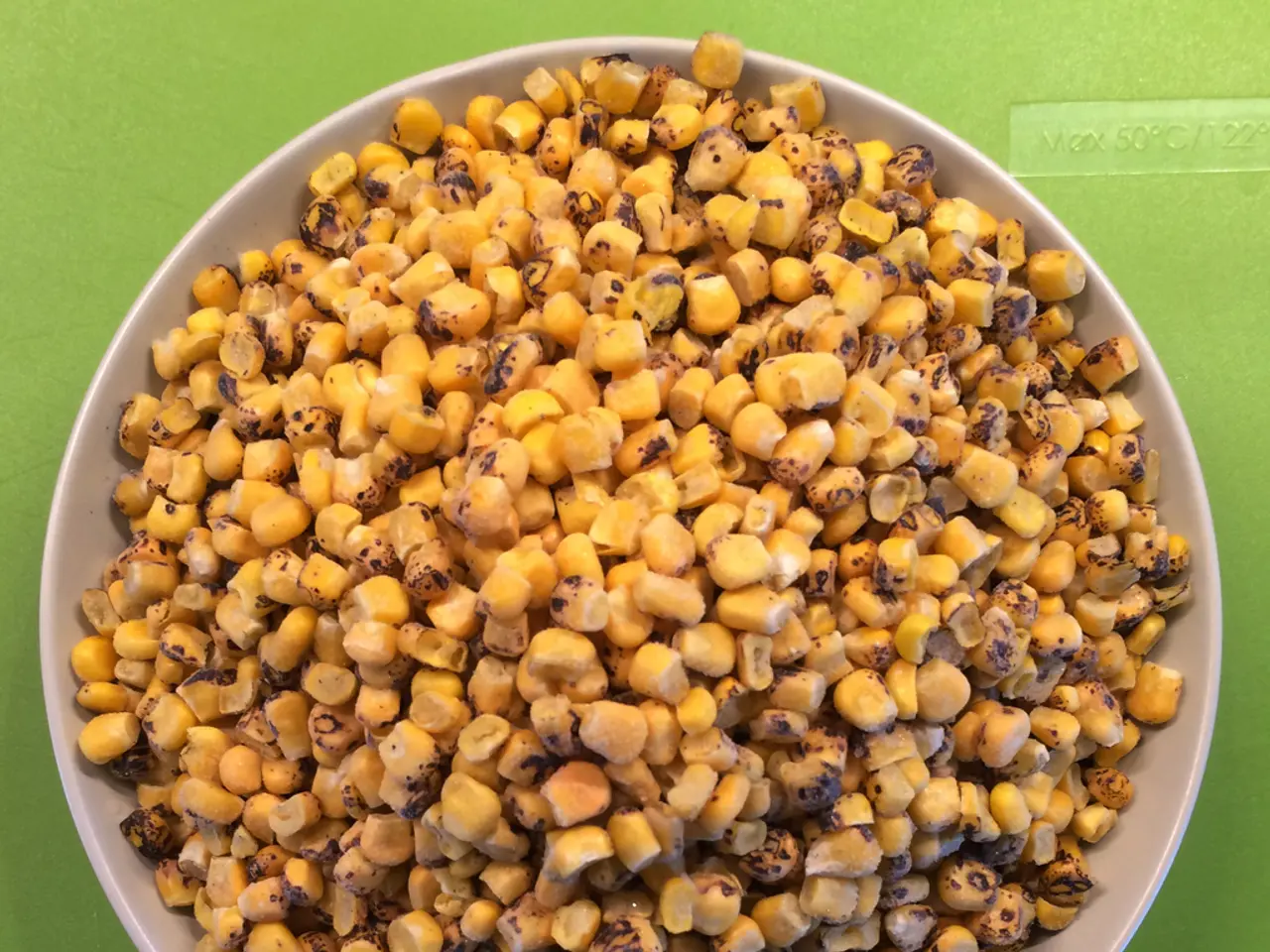Crop production faces significant reductions in a warming climate, even with adaptation efforts in place.
In a groundbreaking study published in Nature, researchers have highlighted the impact of climate change on global crop yields, finding that many staple crops, such as maize, rice, and soya beans, are particularly vulnerable to warming temperatures. The study, which uses data from 12,658 sub-national regions, has been hailed as a key innovation due to its method of linking global calories to changes in temperature.
The research underscores the need to consider adaptive capacity in yield projections and the importance of real-world adaptation decisions, such as changing crop types, investing in irrigation, or adopting resilient varieties, in understanding agricultural impact assessments.
The findings reveal that the world's "breadbaskets", such as the US and Europe, will have less adaptive capacity than poorer regions. For instance, in Africa, the researchers project an overall yield decrease of 16% by 2098 with no adaptive measures in place, which is reduced to 11.6% with adaptations. In contrast, in North America, adding adaptation to projections of staple yields makes almost no change, reducing losses from 21.0% to 20.8%.
Soybean experiences the largest projected losses, up to 22.4%, even with adaptation, while rice shows the smallest losses, just over 1%. Maize yields decline sharply with exposure to temperatures above critical thresholds, such as every day above 25°C significantly impacting yield negatively.
The study models the impacts on crop yields under two emissions scenarios - moderate (RCP4.5) and very high (RCP8.5) - for two time periods - 2050 and 2098. The researchers estimate the total impact of warming on global calories, finding a "nearly linear" decrease in global calorific output of 554tn kilocalories per 1°C of warming.
Adaptive measures can reduce total yield losses by around 12% by the end of the century, but substantial losses remain despite these measures. Temperature increases are the dominant factor negatively affecting yields across the six crops studied. Adaptive strategies moderately mitigate yield drops from extreme heat but can also reduce yield gains during moderate temperature increases.
In economic terms, agricultural damages from warming range widely in cost, indicating significant economic risks despite adaptation efforts. The study provides maps showing the percentage of yield losses for the six staple crops in 2098 under a moderate-warming scenario that factors in adaptation, with darker colors indicating a stronger response and reds showing yield decreases and blues showing yield increases.
The nuanced effectiveness of adaptive measures suggests that global food security will require both improved adaptation and broader climate mitigation to reduce warming impacts on key staple crops worldwide. Strategies focusing on heat tolerance, sowing optimization, and field management show more promise than irrigation alone under future warming scenarios.
This research raises questions about global food security and international political stability, as climate change continues to pose significant challenges to agricultural production and food security.
- The study in Nature emphasizes the significance of science, particularly environmental science, in understanding the impact of climate change on food-and-drink production, specifically global crop yields.
- The research indicates that lifestyle changes, such as adopting resilient crop varieties or investing in irrigation, are crucial adaptive decisions for mitigating the effects of climate change on agricultural yields.
- Education-and-self-development about the vulnerability of staple crops, like maize, rice, and soya beans, to climate change, and the importance of adaptive capacity in yield projections is essential for making informed decisions to ensure food security.
- The findings suggest that while adaptive measures can reduce losses, substantial reductions in calorific output persist due to temperature increases, highlighting the need for collective efforts in climate mitigation for global food security.




